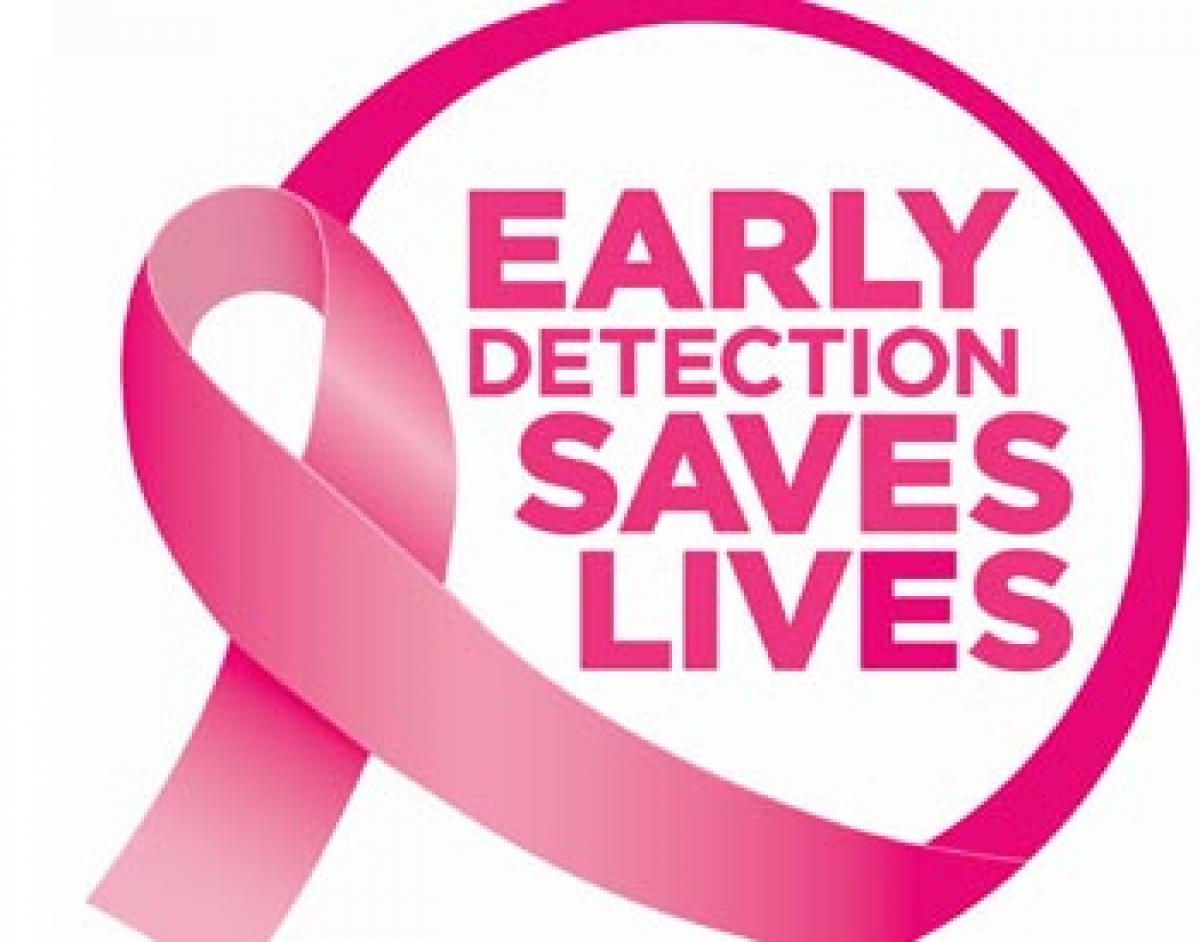Live
- AP Assembly session continues for fourth day, discussion on budget today
- YSRCP leader Gowtham Reddy booked for attempt to murder
- Chief Minister A. Revanth Reddy Extends Kartika Purnima Greetings
- CM A. Revanth Reddy Wishes People on Guru Nanak Jayanti
- Wanaparthy District: On Friday morning, a tourist bus lost control and went into the crop fields on National Highway
- Green buildings essential for sustainable development: Khandre
- Basavanagudi Kadalekai Parishe: Govt gives good news to groundnut traders
- Yanamala blames YSRCP policies for collapse of state economy
- Call to inculcate habit of reading books
- 63% parents give milk to their kids to maintain intake of calcium
Just In

Breast cancer incidence increasing in younger women . As the Breast Cancer Awareness Month comes to a close, Dr AVS Suresh, Consultant Medical Oncologist and Hematologist, Continental Hospital in Hyderabad says breast cancer today has become the leading cause of cancer related deaths in women in India, overtaking cervical cancer.
.jpg) As the Breast Cancer Awareness Month comes to a close, Dr AVS Suresh, Consultant Medical Oncologist and Hematologist, Continental Hospital in Hyderabad says breast cancer today has become the leading cause of cancer related deaths in women in India, overtaking cervical cancer.
As the Breast Cancer Awareness Month comes to a close, Dr AVS Suresh, Consultant Medical Oncologist and Hematologist, Continental Hospital in Hyderabad says breast cancer today has become the leading cause of cancer related deaths in women in India, overtaking cervical cancer.
“Clinical evidence suggests that breast cancer occurrence has increased in relatively younger women today. Unlike a decade back when most women patients diagnosed with breast cancer were above 50, today more women under 50 years of age are being diagnosed with the disease,” says Dr AVS Suresh.
According to estimates of World Health Organization (WHO), roughly 144,937 women in India were detected with breast cancer in 2012 and 70,218 died of it, making it one death for every two new diagnoses. It is also estimated that since 2008, breast cancer incidence has increased by more than 20 per cent, while mortality has increased by 14 per cent worldwide.
“While three most important breast cancer risk factors are age, sex and genetic susceptibility, there has been a rising contribution of lifestyle factors to the increased burden of the disease. In fact, lifestyle modification can prevent almost 30 per cent of all cancers. The modifiable risk factors include reproductive factors like early menarche, late menopause, late pregnancy, reduced duration of breast feeding, obesity, physical inactivity, smoking and unhealthy eating habits,” says the doctor.
“A notable observation in the field today is increase in number of relatively younger patients presenting in advanced stage of the disease. This implies the emergence of fast growing and aggressive cancers, which are biologically difficult to treat. Unfortunately, close to 45 per cent of all breast cancer deaths in India happen due to late diagnosis of the disease and almost half of these deaths are positively preventable if the disease is presented on time. This highlights the high lack of awareness among people as well as a complete absence of a mass screening program,” adds Dr Suresh.
Regular screening not only saves lives by diagnosing the disease at an early stage, but also allows doctors to undertake less toxic and less disfiguring treatments, which ensure greater comfort and longer life for the patient, with higher chances of cure. “Genetic testing has in recent years emerged as a valuable tool in the hands of oncologists to treat breast cancer in a more customised way to reduce mortality and disfigurement.
By giving a better understanding of biology of a tumour, gene tests like Oncotype Dx and Mammaprint help analyse molecular subtypes of the cancer, risk of recurrence of early stage cancer, thereby enabling medical oncologists to take informed decisions on the course of treatment. “With the help of these tests, chemotherapy can be optimised and in a few cases even avoided,” says Dr Suresh.
While educating the people, it is also important to share success stories and communicate that breast cancer is not synonymous with early death. “The current scenario of breast cancer is much better as we are seeing long survivors despite stage IV diagnosis, more often than earlier days. This is good news.
However, the best thing still is to avoid “Stage IV situation” and ensure the disease is diagnosed as early as possible,” says the doctor. Self diagnosis can be done by monthly self examination starting at 25 years of age, along with clinical breast examination every 3 years and clinical breast examination with mammography yearly after the age of 40 years.

© 2024 Hyderabad Media House Limited/The Hans India. All rights reserved. Powered by hocalwire.com







